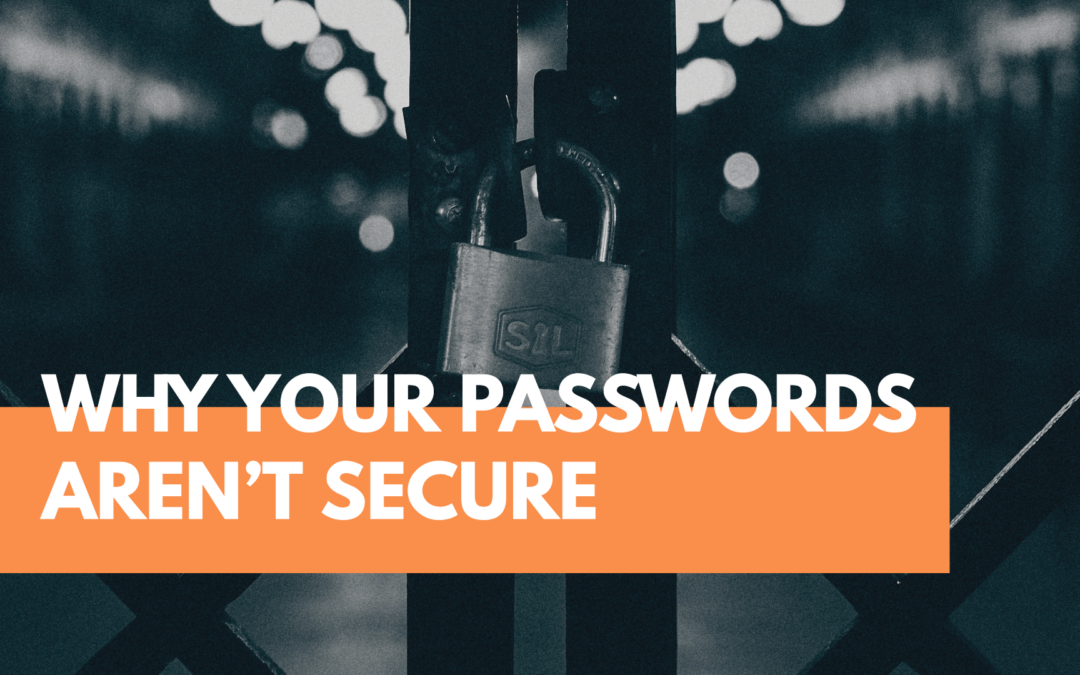When you stop to think about it, it’s actually incredible how much information our passwords hold access to. While they used to be limited to emails and some membership websites, we now rely on a short string of characters to protect our credit cards, bank accounts, and private documents. That’s why password security simply can’t be over-emphasized.
While requirements are becoming stricter–like requiring longer passwords that use numbers and special characters–site policies alone aren’t enough to protect your information. If you want to brush up on your cybersecurity, make sure to follow these crucial tips.
Change Your Passwords Often
Many people shun the idea of changing their passwords. Oftentimes, this comes from the mindset of, “If it hasn’t been hacked yet, why do I need to go through the trouble?” In reality, just because someone hasn’t gained access to a particular account, doesn’t mean your password is secure.
Passwords get leaked all the time and sometimes businesses don’t even realize when information is stolen (and neither do you). Even with a scanning service that looks for your login information on the dark web, you could miss a leak or not see it until it’s too late. So, you should try to update your password at least once a year, but experts suggest every three months.
Don’t Reuse Passwords
By far, one of the biggest mistakes people make when it comes to password security is reusing the same password across multiple accounts. This is the quickest way to have your privacy violated because one leaked login is all it takes for a hacker to try finding your accounts on any number of websites, like popular banking apps.
Of course, one of the trickiest aspects of security is that keeping a unique password for every website you’re on is not easy. To make it simpler, come up with a password to use–but only on websites where you deem security isn’t necessary. Like an account where you have no contacts, no saved payment info, etc. Basically, only reuse passwords for accounts that you would feel comfortably sharing public access to.
Create a Unique Formula
The best way to remember passwords is to come up with a formula. The more numbers, special characters, and upper/lowercase mix, the better.
For instance, “m<3wAliv3N07pp” follows the mnemonic “my (“m”) love (“<3”) will (“w”) always (“A”) live (“liv3”) in (“N”)” followed by a number (“07”) representing the day of the week you refreshed all of your passwords and the first letter of each syllable in the website name (“pp” for “PayPal”).
It may look complicated, but that’s precisely the idea. Avoid using real words and never include personal information. Get creative and come up with a formula that only you will remember. The more characters you change from one account to the next, the better off you’ll be.
Use New Tech to Your Advantage
If you’re afraid of always forgetting your passwords or having to type them in, use a password manager to store them securely.
More than that, consider using 2FA, or “two-factor authentication,” wherever it’s an option. This method allows you to login with your password and then the site sends a text or email with a link to confirm it’s you. Fingerprint and facial recognition also add security, especially to your devices, although it’s less widely used for sites and apps.
Ultimately, it’s expected that a lot more password security tools and techniques will emerge in the coming years as we continue to deal with major cybersecurity threats in the wake of more information being stored online. Your best bet is to keep an eye out for threats, and security tips, to make sure you’re protected.


Recent Comments